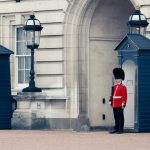Overview of Traditional British Textile Dyeing
Traditional British textile dyeing is a testament to creativity and cultural significance. Did you know that the history of textile dyeing in Britain dates back to the early medieval period? During this time, local plants and natural materials were harnessed to create vibrant colors for fabrics.
The practice was heavily influenced by the availability of natural resources. Indigo, madder, and woad were some of the key materials used in historical techniques. While indigo was renowned for producing striking blues, madder provided a rich red hue, and woad was another blue dye source. These materials were often combined with other natural additives to create a spectrum of colors.
Topic to read : Engaging Experiences: A Guide for Tourists to Explore Interactive Exhibits on British Animation History in London
The cultural significance of textile dyeing extended beyond aesthetics. Dyes often symbolised status and wealth, with certain colors reserved for nobility. Over time, as trading expanded, Britain adopted diverse influences, which gradually evolved the dyeing techniques and palette.
Traditional dyeing has shaped British culture, impacting everything from fashion to art. The evolution of these practices reflects Britain’s adaptive approach to innovation while preserving important cultural roots. The interplay between ancient techniques and modern adaptations continues, allowing this time-honored craft to thrive in the present day.
Also to read : Discover the Best UK Towns for In-Depth Guided Tours on the History of British Witch Trials
Engaging Hands-On Workshops for Tourists
Tourists seeking an in-depth experience will find textile dyeing workshops to be an exceptional choice. These immersive experiences provide a unique opportunity for visitors to engage directly with local culture and artistry. Various workshops are tailored to different aspects of textile dyeing, ranging from traditional techniques to modern methods. This helps ensure that each participant can find the right fit for their interest level and expertise.
Types of Workshops
Visitors can choose from introductory sessions, aimed at individuals who are completely new to textile dyeing, to advanced classes for more experienced hobbyists. The workshops often include detailed discussions of fabric preparation, dye application, and pattern creation. By engaging in hands-on learning, participants gain a deeper understanding of these techniques, elevating their appreciation for the craft.
Immersive Learning Experiences
The real allure of these tourist activities lies in their immersive nature. Unlike traditional tours or exhibits, these workshops involve active participation, fostering a connection between tourists and local artisans. Such engagement not only educates but also enriches the travel experience, leading to a more profound understanding of the cultural significance behind textile dyeing.
Benefits of Hands-On Learning
Hands-on learning is crucial for truly comprehending textile dyeing. The tactile nature of working with textiles and dyes can reveal complexities not apparent through mere observation. Participants leave with a tangible sense of accomplishment and often, a handmade souvenir to cherish.
Workshop Locations, Duration, and Cost
When seeking out textile dyeing workshops, it is essential to consider both the location and the cost. This can make a significant difference in your planning and experience.
Popular locations for textile dyeing workshops
In Britain specifically, London and Manchester are renowned hubs for textile dyeing workshops. These cities boast a variety of scheduling options for different skill levels and interests. Other regions, such as Bristol and Edinburgh, also offer workshops that attract enthusiasts from across the country. Choose a location based on your interest and proximity to these creative hubs.
Typical duration of workshops
The average duration of these workshops varies. They can range from single-day events to extensive multi-day experiences. One-day workshops usually focus on specific techniques, while longer options provide more detailed, hands-on learning. Time commitment largely depends on how deep you wish to delve into the dyeing process.
Cost ranges and payment options
Pricing for textile dyeing workshops can differ widely. Simple, one-day events might cost around £50 to £100. More comprehensive, multi-day workshops may range from £200 to £500. Payment options often include online payment portals or direct bank transfers. Certain workshops also offer discounts for early registration or group bookings, making them financially accessible to more participants. Consider the value of the experience relative to the cost when making your decision.
Learning Outcomes from Textile Dyeing Workshops
Engaging in textile dyeing workshops provides participants with a unique opportunity to enhance their skills in both practical and theoretical aspects. One of the key skills learned includes the ability to handle different types of dyes and fabrics effectively, allowing participants to explore various results through experimentation.
During these workshops, attendees practice a range of techniques such as dip dyeing, tie-dyeing, and shibori. These activities not only enhance creativity but also strengthen understanding of the dyeing processes. Through hands-on experiences, participants gain a comprehensive view of how colours interact with different materials and conditions.
Participant experiences are enriched by the collaborative environment. Sharing ideas and results fosters a deeper appreciation for the art and science of dyeing. Experiencing the outcomes first-hand helps solidify their understanding of how slight adjustments can significantly alter results.
Understanding both the practical and theoretical aspects of dyeing is crucial. Theoretical knowledge helps participants anticipate outcomes more accurately, while practical engagement allows them to witness the effects of various methods and materials. Achieving this balance enhances one’s proficiency in textile dyeing, making these workshops invaluable for budding designers or hobbyists looking to expand their techniques.
Testimonials and Reviews from Previous Attendees
For anyone curious about the impact of our workshops, the participant reviews offer eye-opening insights. Many attendees express newfound appreciation for textile dyeing. Common themes in workshop testimonials highlight personal growth and increased understanding of the craft, underscoring how transformative these sessions can be.
Numerous participants describe the experience as both enlightening and enjoyable. One feedback states, “The hands-on approach was invaluable, illuminating the nuances of fabric color transformation.” This sentiment echoes through many reviews, illustrating how learning in a practical environment enhances comprehension.
Feedback repeatedly underscores the importance of the workshop’s accessibility. As another participant expressed, “I came in with little knowledge, but left feeling empowered and knowledgeable.” This empowerment is a vital component in all participant reviews, as it reflects the workshop’s ability to educate effectively.
The workshops not only enrich skills but also foster a rich appreciation for the artistry involved in textile dyeing. Many participants have stated that they walked away with a deeper respect for the creativity and technical precision this craft demands. Overall, the glowing workshop testimonials serve as a testament to the workshop’s success in fostering both knowledge and enthusiasm.
Practical Tips for Booking and Preparing
Booking a workshop while traveling can greatly enrich your experience. It allows you to immerse yourself in local culture and acquire new skills. To ensure success, thorough preparation is key. Here are some booking workshops and preparation tips tailored to travelers.
How to Book Your Workshop
Start with researching workshops in your destination. Look for reviews and ratings to gauge credibility. Most workshops nowadays offer online booking options. This simplifies the process significantly. Ensure to complete your booking at least a few weeks in advance to secure your spot. Always verify the booking confirmation details and any specific requirements outlined by the organizer.
Essential Items to Bring
To have an optimal workshop experience, consider bringing certain items. A notebook and pen are essential for jotting down insights. A camera can be valuable for capturing memorable moments or details you might need later. If the workshop involves physical activity, comfortable attire is advised. Packing these basic items prepares you for a more engaged participation.
Recommended Preparation Steps
Maximizing your workshop experience involves a few personalized steps. First, familiarize yourself with the tourist advice for your destination, including local customs. Next, research the workshop topic to cultivate foundational knowledge, which enhances interaction and understanding. Lastly, approach your learning with an open mind and readiness for new experiences.










